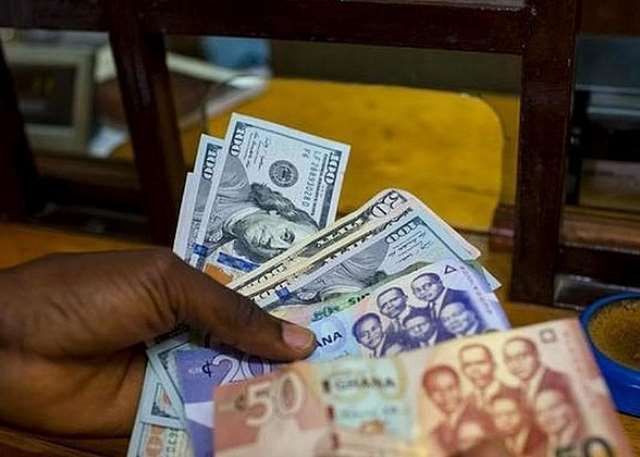The Ghanaian cedi faced continued depreciation against major international currencies, particularly the US dollar, on September 4, 2025. This downward trend reflected across various exchange platforms, including forex bureaus, the Bank of Ghana interbank market, and money transfer services. The varying rates across these platforms highlighted the dynamic nature of the foreign exchange market and the influence of factors such as supply and demand, transaction fees, and specific market segments. The depreciation of the cedi raises concerns about its impact on the Ghanaian economy, including import costs, inflation, and the overall cost of living for citizens.
The forex bureau market, a significant player in currency exchange, saw the cedi trading at an average buying rate of GHS12.40 and a selling rate of GHS12.70 against the US dollar. This marked a noticeable difference from the Bank of Ghana’s interbank market rate, where the cedi traded at GHS11.89 for buying and GHS11.91 for selling. The disparity between these rates can be attributed to the forex bureaus’ inclusion of profit margins and operational costs in their exchange rates. Moreover, the interbank market typically deals with larger transactions between banks and financial institutions, while forex bureaus cater to individual customers and smaller businesses.
The cedi also struggled against other major currencies. Against the British pound, forex bureaus offered average buying and selling rates of GHS15.62 and GHS16.50, respectively. The Bank of Ghana’s interbank rate for the pound stood at GHS16.01. Similarly, the euro traded at GHS13.59 for buying and GHS14.34 for selling at forex bureaus, compared to the interbank rate of GHS13.90. This consistent depreciation across multiple currencies suggests underlying economic factors impacting the cedi’s overall value.
Money transfer services, a crucial channel for remittances to Ghana, offered slightly different rates for the cedi. LemFi provided rates of GHS12.05 for the dollar, GHS16.26 for the pound, and GHS14.06 for the euro. Afriex offered slightly more competitive rates at GHS11.90 for the dollar, GHS15.94 for the pound, and GHS13.82 for the euro. These variations are likely due to differing fee structures, transfer speeds, and the platforms’ specific target markets. Remittances play a significant role in Ghana’s economy, supplementing household incomes and contributing to foreign exchange reserves.
Digital subscription payments using Visa and Mastercard for services like Netflix, Spotify, and Apple Music were processed at a rate of GHS12.89 per dollar. This specific rate for online transactions reflects the card companies’ own exchange rate mechanisms and fees. The growing popularity of digital services highlights the increasing integration of global platforms into the Ghanaian economy and the subsequent impact on currency exchange dynamics.
The observed depreciation of the Ghanaian cedi against major currencies on September 4, 2025, signifies broader economic trends that warrant attention. Factors such as inflation, trade balances, and foreign investment flows can influence currency fluctuations. Monitoring these factors and implementing appropriate economic policies will be crucial for stabilizing the cedi and mitigating the potential negative impacts on the Ghanaian economy. Understanding the interplay between different exchange platforms – forex bureaus, interbank markets, money transfer services, and digital payment gateways – provides valuable insights into the complexities of the foreign exchange landscape and its implications for individuals, businesses, and the overall economic health of the nation.


